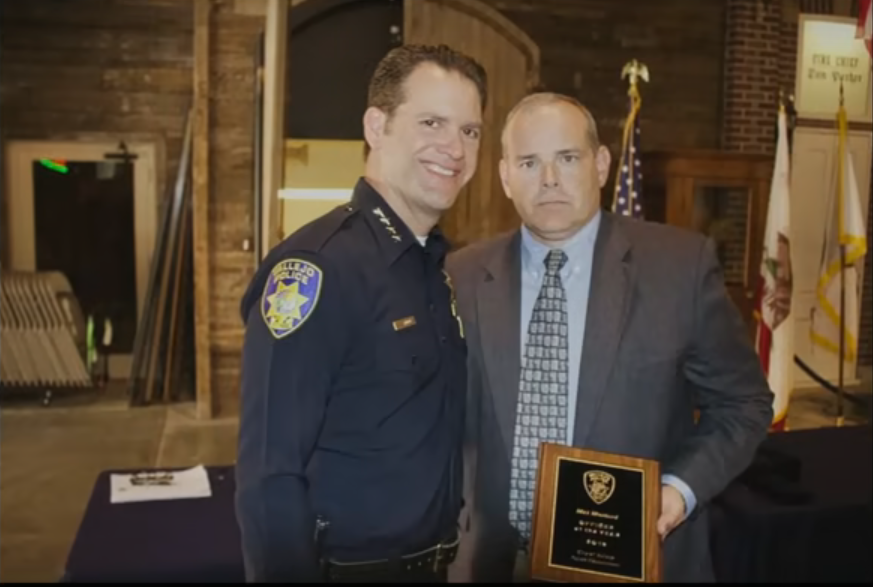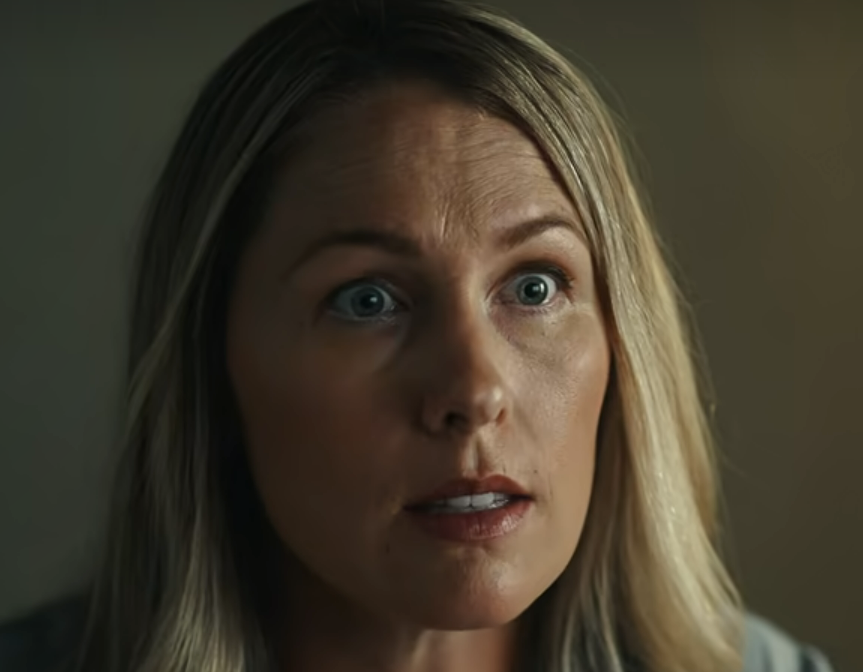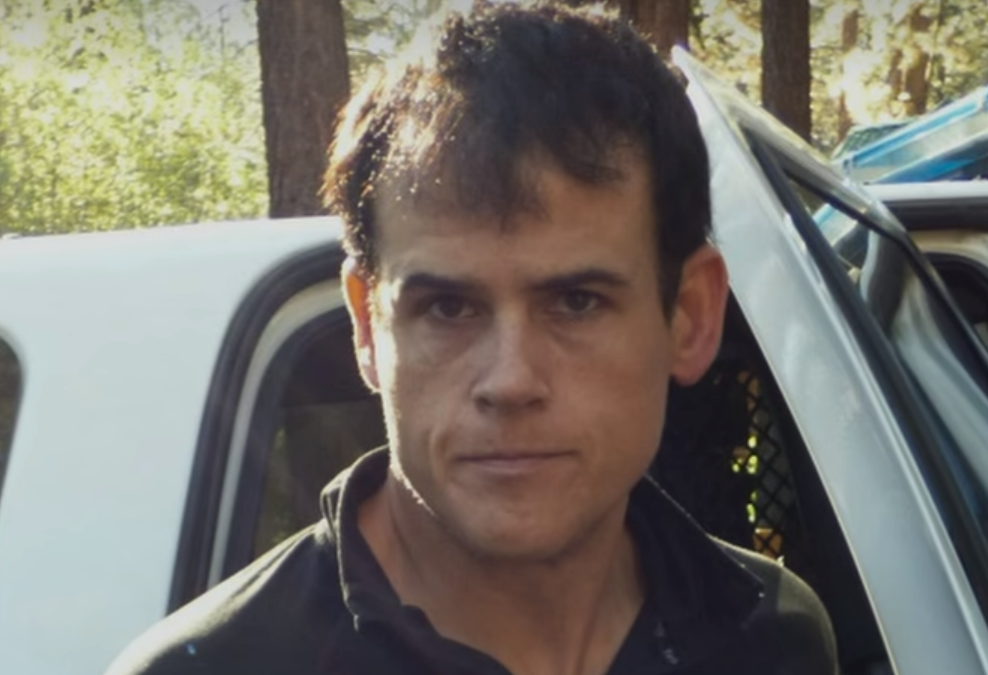Matthew Muller. Photograph: Netflix
Trigger Warning: This blog contains explicit content, including discussions of sexual assault and the use of strong language. Reader discretion is advised. If you find these topics distressing, we recommend skipping this content or reading with caution. Remember to prioritize your mental and emotional well-being.
The aspect that stood out to me in this Netflix series is the misogyny.
The way in which people still get away with misbehaving with women, and the police that should help them turn around and make it even more difficult for women, leaving no stone unturned to portray the woman as unreasonable and mentally unstable, as if they are not capable of processing what happened to them.
Here are a few instances of misogyny that stood out in the series.
1. Views on sexual abuse that reeks of misogyny.
Instead of searching for a kidnapped woman, Detective Mat Mustard asks Denise’s mother about Denise’s character:
How many boyfriends does she have?
How long has she had these boyfriends?
Does she drink a lot?
When informed that Denise was molested as a small child, his response was,
‘Women who have been sexually assaulted often pretend to have it happen again so they can relive the thrill of it.’

Mat Mustard receiving the Officer of the Year Award (Source:Netflix)
2. No repercussions for law enforcement, who are careless and ignorant regarding crimes against women, is a form of misogyny.
None of the officers involved in Denise and Aaron’s case faced discipline. Lead detective Mat Mustard was awarded Officer of the Year in 2015.
In 2014, on Mare Island, a group of students experienced harassment from a male individual who would discreetly peer into their windows, take photos, and then quickly retreat. Unfortunately, the police took no action.
After a couple of students followed the man home and discovered that he also resides on the island, is a former military personnel, and works as a lawyer, the police failed to follow up on the case despite having leads.
Later, Misty Carausu connects the dots and finds that Matthew Muller is the Mare Island Creeper.
3. Doubting and gaslighting women when they report sexual violence is a form of misogyny.
After being released by her kidnapper, Denise went to the police and gave her statement, explaining every difficult detail. After that, Detective Mustard started asking questions like,
Did she scream or fight back?
Why did she not scream or fight back?
Even after months following her return, the police were looking into Aaron and Denise and not the kidnappers.
Matthew Muller’s first sexual assault attempt took place in 2009. He refused to victimize her as she pleaded with him, mentioning that she had already been sexually assaulted once before.
In the same year, another woman named Tracy was attacked by Muller. She was living alone. When he jumped on her bed, he kept calling her name.
When she pleaded with him to let her go, he finally agreed and gave advice on getting a dog for protection.
When she informed the police, the officer asked her,
Are you sure you didn’t have a bad dream?
She showed them the marks on her hands.
They questioned her boyfriend, asked him
if she was an attention seeker
was she prone to making stories
did he believe that this really could have happened
4. The lack of empathy shown to women who underwent sexual abuse is misogyny.
The only people showing any kind of empathy for the victim are the woman police officer and her attorney.
According to Denise’s attorney, who was sitting right next to her while giving a police statement, they looked at her like a piece of trash.
5. A woman officer had to work overtime and took it upon herself to personally prove a case that had a lot of leads.
Are men really the golden standard they claim to be?
Misty Carausu‘s conviction that there is another victim led to the arrest of Matthew Muller. The discovery of a blond hair in the goggles used to blindfold eventually led her to Denise.
She became a police officer because one of her girlfriends was a victim of sexual assault. Desiring to be the voice of the victims, she worked after hours on this case.
6. The shame experienced by the victim is a form of misogyny.
Why are women shamed or are ashamed of themselves after experiencing abuse?
The pervasive narrative that reduces women to just their bodies plays a significant role.
From societal comments on women’s bodies to attempts to control reproductive rights and the questioning of virginity, the emphasis on a woman’s worth tied to her body is deeply ingrained in our culture.
Denise feels apprehensive about meeting Aaron, her boyfriend, for the first time after he learns about the sexual abuse.
This concern should be the last thing on the mind of a sexual abuse victim, highlighting the profound impact of societal perceptions on women’s self-worth.

Denise Huskins (Source:Netflix)
7. Treating sexual abuse of women as a petty crime is a form of misogyny.
Denise herself narrates an instance where she was sexually assaulted at 19 and went to report it. In the parking lot of the police station, an officer essentially talks her out of pursuing it.
He says,
“You know, really it’s a ‘he said, she said.'”
“There is not gonna be any proof.”
8. Jumping at the first opportunity to believe a woman is wrong is pure misogyny.
Denise was interrogated by FBI agent David Sesma. He kept telling her there were inconsistencies in her story, even though there weren’t.
Her attorney finally asked him,
“Why do you still believe she is lying? There are no discrepancies in her story.”
He replied,
“Haven’t you seen Gone Girl?”
The movie Gone Girl came out a year before this incident. They would rather believe a movie to prove an investigation than believe a woman.
It is as if they want to punish women for even a fictional psychotic female character.
She lived 48 hours trying to survive, and after surviving, she had to make them believe that she was kidnapped.
9. Verbal abuse and cyber/media attacks against women still being a norm shows how prevalent hate towards women is.
Andrew Bidou, chief of Vallejo PD, before the police had a national press conference where they were called liars, told the officer Park to “burn that bitch.”
The police released a statement saying she had wasted the community’s resources, implying that she was a hoaxer. All the media went after her.
Denise received a lot of abusive messages on Facebook, such as whore, bitch, and ‘you should be killed’.
Aaron did not receive any such hate messages, only Denise, even though both were called liars by the police in the press conference.
10. The entire system is designed to break women.
Now, let’s look at Denise Huskins’s own words.
The first time when I was assaulted, I was 12. I was just a child and it was unexpected. I blamed myself. I was ashamed.
A couple of years later, I found out that he moleseted another girl. And I felt this incredible guilt that I didn’t say something sooner.
And I am 19, and it happens again. I’m at a friend’s house, a close friend. We’re with a small group of people. We have been drinking. I fall asleep on the couch, and I wake up. My pants are off. And some guy’s fingers are inside of me.
I thought, “Okay, this time I am gonna report it.”
I get to the police station, and in the parking lot, I met with an officer who basically talks me out of it.
He says, “You know, really it’s a ‘he said, she said'”.
“There is not gonna be any proof.”
And then here I am, literally taken in the middle of the night. My body stolen and violated. And it is still-They don’t believe me.
I don’t know what needs to happen to me, what needs to happen to any woman for them to be believed.
This reminds me of “Promising Young Woman.” The person who went through gang rape had to commit suicide. For the culprits to be caught, her best friend had to be murdered.
When women are murdered, all the sympathies just pour in. When they get away after being raped and still stand strong, society seems to have a problem.
The Kidnapping and the Sexual Assault
The kidnapping and rape resemble classic narcissistic abuse, involving gaslighting, lovebombing, and deriving satisfaction from breaking the other person down and exerting control.
This is not surprising, as misogyny is a form of narcissism, based on the belief that someone is inferior by virtue of their birth.
The sexual abuse is not always the violent, unexpected type usually portrayed in movies. In this case, Matthew doesn’t rape her instantly. He waits, employing tactics like lovebombing and treating her well.
During the initial stages, the abuser often behaves in a friendly and affectionate manner, known as the lovebombing phase, to gain the victim’s trust and manipulate their behavior according to their desires.
The kidnapper, Matthew Muller, initially presented himself as kind and polite to Denise. He shared personal information, such as his military background, insomnia, and PTSD, and in her own words, Denise described him as human, thoughtful, and polite in the beginning.
However, he later coerced her into having sex, videotaping it as leverage to prevent her from contacting the police. Complying out of fear for her life, Denise described the experience as an out-of-body one.
He rewarded her compliance by allowing her to remove her goggles when he was not in the room, conditioning her with rewards for compliance.
This marked the first time she realized his words could not be trusted.
During the home invasion, he initially claimed it was a robbery, but it escalated to kidnapping. Despite assuring not to dehumanize her, he still raped her upon entering the house.
The next day, he recorded another assault, aiming to make it appear consensual.
Bringing wine and alcohol, he callously joked about her consumption, showing no remorse. Taping her eyes shut, he persisted with various methods to break her.
Even when Denise did not break in front of him, he continued trying to break her down.
He then resorted to showing her media clippings about her father’s efforts to find her, causing her to finally break down. He callously consoled her, saying, “It must feel real now,” indicating his desire to see her emotionally shattered by his actions.
Even after enduring mistreatment and abuse from all directions, she managed to heal. Now, she leads a happy life with Aaron and their two children. Her story serves as a beacon of hope for all abuse survivors. Whenever you feel the whole world is against you, remember Denise.


